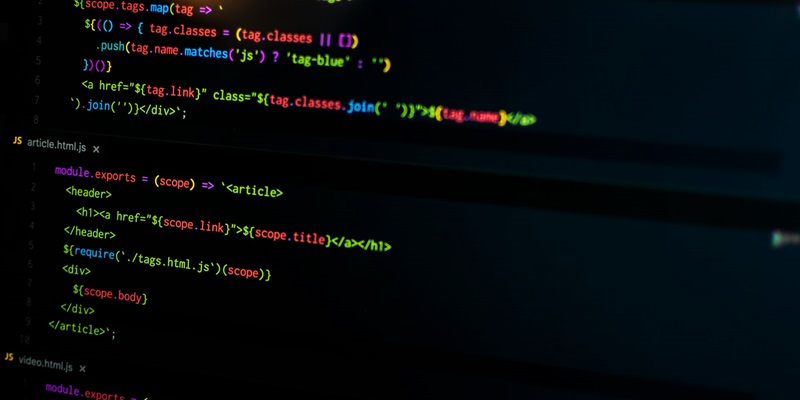Juniper Networks, a leading networking technology company, has recently released a set of patches addressing multiple vulnerabilities in the J-Web component of Junos OS on SRX series firewalls and EX series switches. These vulnerabilities could potentially expose users to cross-site scripting attacks, unauthorized access, and missing authentication. The prompt release of these patches aims to safeguard users’ systems and prevent any potential exploitation of these vulnerabilities.
High-severity vulnerability: Cross-Site Scripting (CVE-2024-21620)
One of the most severe vulnerabilities that has been resolved is a cross-site scripting flaw, tracked as CVE-2024-21620. This vulnerability has a CVSS score of 8.8, highlighting its critical nature. By exploiting this vulnerability, an attacker could create a malicious URL that, when accessed by a user, could execute arbitrary commands with the permissions of the user, including those of an administrator. This could lead to unauthorized access and the potential compromise of sensitive information.
Security Defect: Unauthorized Access (CVE-2024-21619)
Another security defect addressed in the J-Web interface is CVE-2024-21619, which could allow an unauthenticated attacker to gain unauthorized access to sensitive information over the network. This vulnerability poses a significant risk to the confidentiality and integrity of data.
Patch details
To mitigate these vulnerabilities, Juniper Networks has released patches in various Junos OS versions. The affected versions that have been patched include 20.4R3-S9, 21.2R3-S7, 21.3R3-S5, 21.4R3-S6, 22.1R3-S5, 22.2R3-S3, 22.3R3-S2, 22.4R3, 23.2R1-S2, 23.2R2, 23.4R1, and subsequent releases. It is imperative for users to promptly update their systems to the latest patch version to ensure the security and stability of their network infrastructure.
Additional Vulnerabilities: Missing Authentication (CVE-2023-36846, CVE-2023-36851)
In addition to the cross-site scripting and unauthorized access vulnerabilities, Juniper Networks has also addressed two missing authentication bugs that could potentially be exploited by unauthenticated attackers. CVE-2023-36846 allows an attacker to send crafted requests over the network and upload arbitrary files via J-Web, while CVE-2023-36851 enables unauthorized file download and upload. The successful exploitation of these vulnerabilities could compromise the integrity of the file system, leading to potential data breaches and system compromise.
Chained Exploitation and Impact
It is worth noting that the CVE-2023-36851 vulnerability may be chained with other vulnerabilities, as stated by Juniper Networks. This implies that if an attacker successfully leverages multiple vulnerabilities in conjunction, they could potentially escalate their attack and cause more significant damage to the targeted systems. Organizations must therefore exercise vigilance and ensure the patching and mitigation of these vulnerabilities to minimize the risk of such chained exploits.
Here are some workarounds and recommendations
As a temporary workaround, Juniper Networks recommends disabling the J-Web component or limiting its access only to trusted hosts. This measure helps reduce the attack surface and mitigates the risk of potential exploitation. However, organizations are strongly advised to implement the recommended patches as soon as possible to ensure comprehensive protection against these vulnerabilities.
No known exploitation
Juniper Networks has not received any reports of these vulnerabilities being exploited in actual attacks thus far. However, the absence of reported incidents does not guarantee immunity from exploitation. To stay proactive and maintain robust security, it is crucial for organizations to stay updated with the latest security advisories and promptly apply available patches.
Advisory from CISA
The United States Cybersecurity and Infrastructure Security Agency (CISA) has issued an advisory urging organizations to review Juniper’s advisory and promptly apply the available patches. CISA emphasizes the potential risk of attackers leveraging these vulnerabilities to gain control of affected systems. To safeguard critical infrastructure and protect sensitive data, organizations should take immediate action in response to this advisory.
The recent release of patches by Juniper Networks demonstrates their commitment to ensuring the security and stability of their network infrastructure. By addressing vulnerabilities such as cross-site scripting, unauthorized access, and missing authentication, Juniper Networks aims to prevent potential exploitation and mitigate risks to their customers’ systems. Organizations must promptly update their systems with the provided patches and follow the recommended mitigation strategies to strengthen their security posture and protect against potential attacks. By staying proactive and vigilant, organizations can effectively safeguard their network infrastructure and protect their valuable data from malicious actors.

